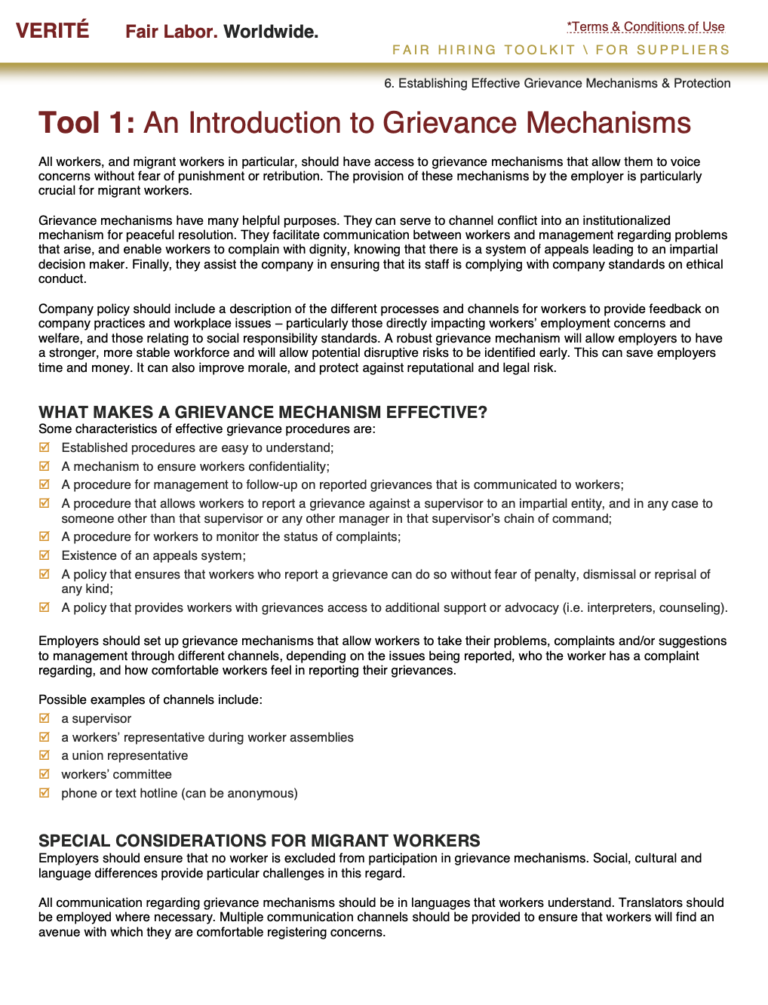All workers, and migrant workers in particular, should have access to grievance mechanisms that allow them to voice concerns without fear of punishment or retribution. The provision of these mechanisms by the employer is particularly crucial for migrant workers.
Grievance mechanisms have many helpful purposes. They can serve to channel conflict into an institutionalized mechanism for peaceful resolution. They facilitate communication between workers and management regarding problems that arise, and enable workers to complain with dignity, knowing that there is a system of appeals leading to an impartial decision maker. Finally, they assist the company in ensuring that its staff is complying with company standards on ethical conduct.
Company policy should include a description of the different processes and channels for workers to provide feedback on company practices and workplace issues – particularly those directly impacting workers’ employment concerns and welfare, and those relating to social responsibility standards. A robust grievance mechanism will allow employers to have a stronger, more stable workforce and will allow potential disruptive risks to be identified early. This can save employers time and money. It can also improve morale, and protect against reputational and legal risk.

